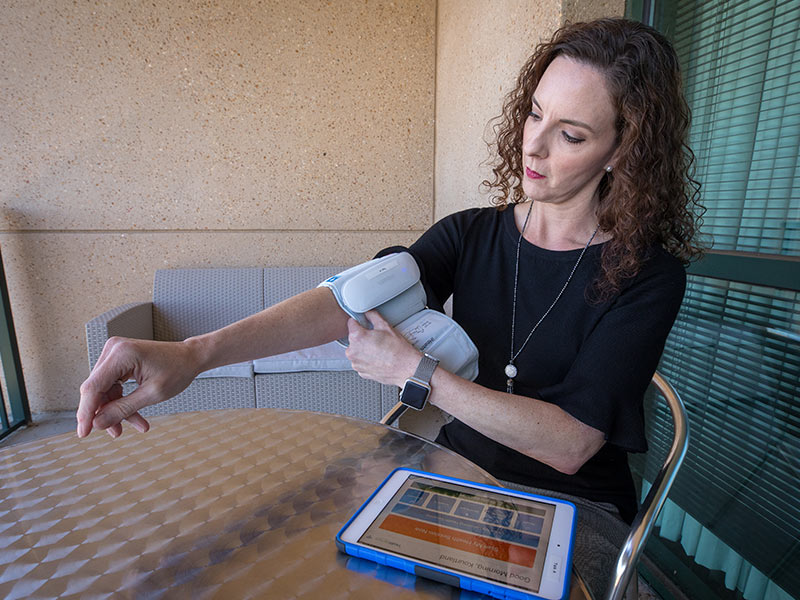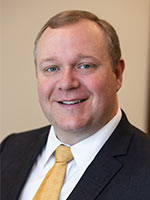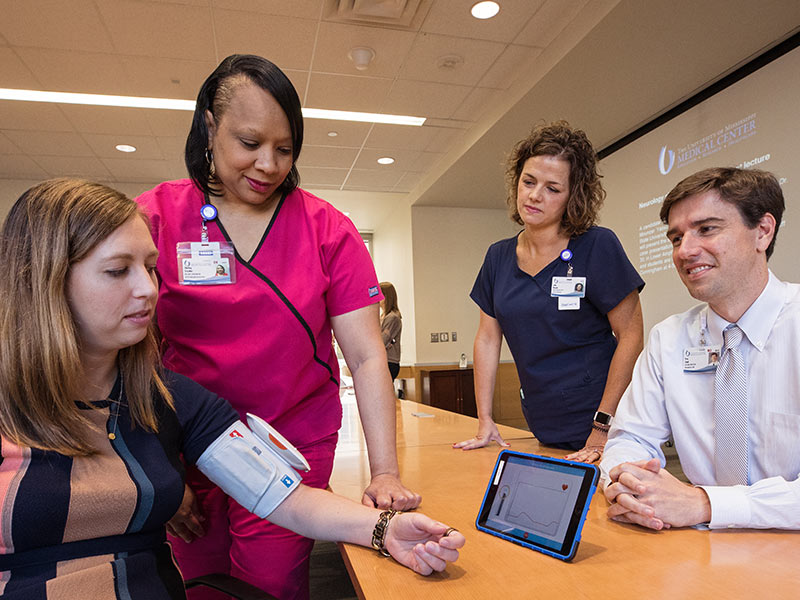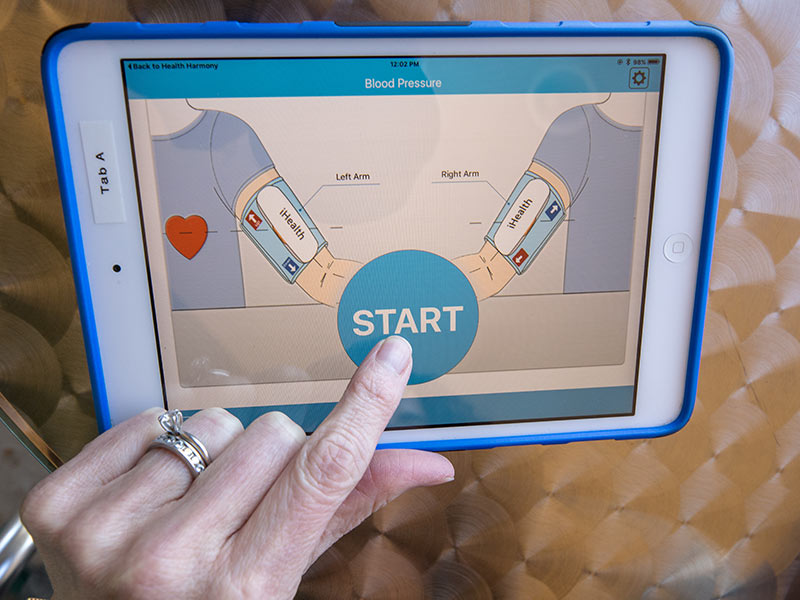Clinical trial explores managing hypertension from home

The remote monitoring of Mississippi Delta diabetes patients in a nationally heralded telehealth pilot abundantly met its goals of keeping them out of the hospital and emergency room – and proved the technology could be used for patients with other chronic illnesses.
Researchers at the University of Mississippi Medical Center, through the UMMC Center for Telehealth, are embarking on a study to manage hypertension patients that has the potential to be just as far-reaching as the diabetes pilot.
“Hypertension is the leading contributor to cardiovascular disease. It’s a major problem, and highly prevalent in Mississippi,” said Dr. Donald “Trey” Clark, a cardiologist and assistant professor of medicine who is the clinical trial’s principal investigator. “With our telemedicine infrastructure, this is a great opportunity to employ remote monitoring so that we can track patients’ blood pressure at home through their electronic health records and implement a management protocol.”
The trial will evaluate the feasibility and safety of established patients with high blood pressure being monitored through caregivers in the Center for Telehealth. Dr. Dan Jones, director of clinical and population sciences at the Mississippi Center for Obesity Research, is a co-investigator in the trial. Jones also is the Mr. and Mrs. Joe F. Sanderson Jr. Endowed Chair in Obesity, Metabolic Disease and Nutrition.
The trial is also supported by a pilot grant from the Mississippi Center for Clinical and Translational Research. The Department of Medicine’s Division of General Internal Medicine and Hypertension and Department of Family Medicine are collaborating.

Adcock
“The benefit of this trial is that it provides a structured program to not only diagnose hypertension, but to manage it according to American Heart Association guidelines,” said Michael Adcock, executive director of the Center for Telehealth.
“This augments what we are doing,” he said. “It allows us the ability not just to measure and diagnose from home, but to create a comprehensive management program for patients with hypertension.”
More than 700,000 Mississippians live with hypertension, and thousands more are at risk. The state has the fourth-highest rate of hypertension in the nation, 40.8 percent of the adult population, the Centers for Disease Control and Prevention says.
The way the trial will work: About 300 patients who meet specific criteria for participation will receive in the mail a kit that includes an electronic tablet equipped with a wireless blood pressure cuff that transmits measurements directly to the patient’s UMMC electronic medical record.

For six months, patients will transmit daily blood pressure readings – two measurements obtained one minute apart. They will be in regular contact with a Center for Telehealth registered nurse care coordinator who will provide education and encourage them to practice healthy lifestyle habits. Every two weeks, patients’ blood pressure medications will be adjusted by a clinical pharmacist in telehealth using a standardized, physician-approved protocol.
Clark and the research team will track and analyze data that include medication therapy and when it’s intensified; safety of the protocol; and patients’ blood pressure change from baseline. Safety metrics being tracked include self-reported adverse events such as emergency room or clinic visits that could potentially be attributed to the protocol.
The hope is that the study will produce a telemonitoring protocol for managing patients’ blood pressure more efficiently, and for better controlling it. “It’s also so that they don’t have to come to clinic as often,” Clark said. “Sometimes, it requires many clinic visits to get blood pressure under control. A lot of our patients live in rural areas, and it’s hard for them to come to a clinic.”
Clark emphasizes that remote patient monitoring is a supplement to a patient’s hypertension treatment. “The backbone of a patient getting care is that good face-to-face relationship with a primary caregiver,” he said. “We are fortunate to have strong primary care leadership at UMMC, including Dr. Marion Wofford (Internal Medicine division director) and Dr. Shannon Pittman (chair of Family Medicine), who have been very supportive of this project.”
Clark and researchers are identifying candidates for the trial through their electronic health records, then coordinating with their primary medical team to get their permission to take part in the trial. “We can send them the kit, and actually (get their consent) for the study using audiovisual technology. That’s never been done here before,” he said.
“It’s exciting, because this allows people in rural areas to participate in studies like this,” he said. “It’s well documented that people in rural areas participate less in clinical studies. We’re taking the travel out of it so that’s not a barrier anymore.”

In 2017, the Center for Telehealth was named one of just two Telehealth Centers of Excellence by the federal Health Resources and Services Administration. “As part of that, we’re required to do a work plan,” Adcock said. “This rolls nicely into our year one HRSA work plan, and into our cooperative agreement with HRSA to develop projects.”
Adcock said the Center for Telehealth is thrilled to work with Clark on the trial. “We could not be happier that he is excited and engaged in this project,” Adcock said. “It’s his brainchild.”
Although the study isn’t projected for completion until September 2021, “within a year, we’ll have preliminary data on the feasibility and safety of the program,” Clark said. “Can we do this? Does it work? Is it safe?
“This particular concept of remote blood pressure monitoring and medication titration has been demonstrated in randomized trials to be effective. It just hasn’t been done in quite this way, and in a state like ours,” Clark said. “It’s proven to be beneficial, but now we’re able to do this for our population.”


